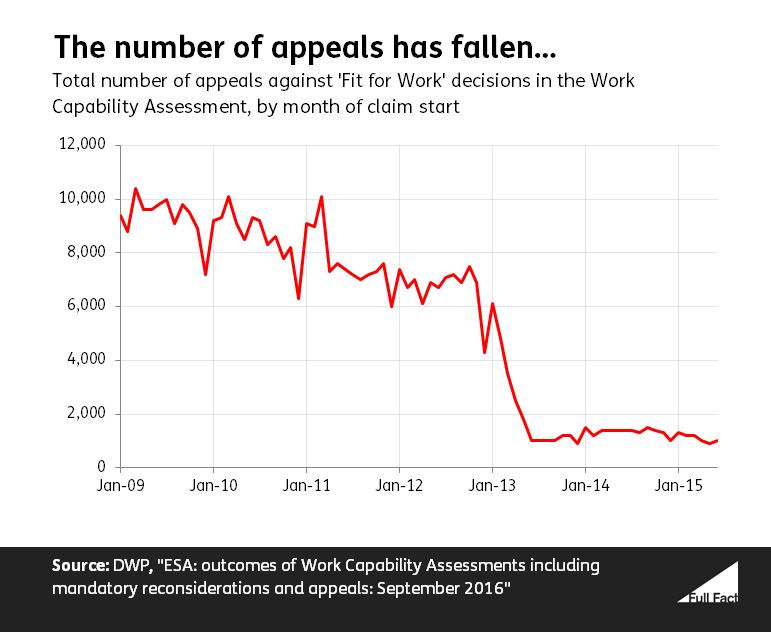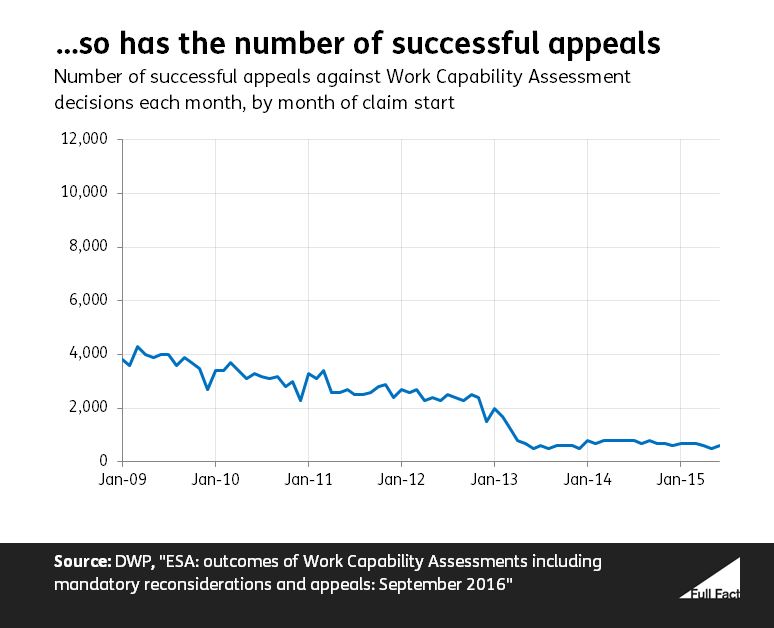“People are going to food banks, and there were 1,100,000 food parcels given – 1,100,000 people who would starve otherwise and over 400,000 of those went to children.”
Ken Loach, 27 October 2016
Mr Loach is right on parcels, administered by the Trussell Trust, but this isn’t the same as 1.1 million people. His claim may be in the right ballpark considering all food banks, but we don’t know for sure.
Figures from the Trussell Trust, which manages a network of food banks across the UK, did show 1.1 million parcels given out in 2015/16. 400,000 went to children.
That isn’t 1.1 million different people. The Trust reports that, on average, people need two food bank vouchers in a year. So the number of people using the Trust’s foodbanks could be around half the total figure.
But this is only part of the picture anyway. The Trussell Trust doesn’t run all food banks across the UK: it’s previously been estimated that it accounts for about half of all food banks.
That means that these figures will underestimate the number of parcels given out nationwide. So Mr Loach’s figure for people could be close to the reality.
Research published this week also shed light on why people are using foodbanks—and the benefits system takes centre stage.
There is a “strong, dynamic relationship” between people having their Jobseeker’s Allowance stopped and increased use of food banks, according to analysis by the University of Oxford. That’s based on referrals to food banks between 2012 and 2016.
This research isn’t the final word on this issue. It doesn’t include sanctions for Universal Credit, for example, which is replacing income-based JSA and now accounts for half as many claimants as JSA, according to estimates.
Appealing a ‘Fit for Work’ decision
The Work Capability Assessment is used by the government to decide who is ‘Fit for Work’, and who can claim Employment and Support Allowance.
These tests have been controversial, and a committee of MPs has recommended that they should be fundamentally redesigned. It said they were too complex and too stressful for people taking them, with outcomes that were too simplistic.
On last night’s BBC Question time, Ken Loach said:
“We know that the Government knows it’s wrong, because if you appeal against the assessment, you will almost certainly win.”
Ken Loach, 27 October 2016
That’s not quite true, and there’s more to the story than just the proportion of appeals that win.
If you appeal a Work Capability Assessment decision, it’s right that you’re more likely to win than lose. The most recent data suggests that about three-fifths of appeals are successful.
But the number of cases that actually make it to appeal has fallen substantially over the past few years.
So although a higher proportion of appeals are successfully overturning the initial decision, fewer cases are making it to that stage.
Appeals
The number of appeals against ‘Fit for Work’ judgements fell significantly after the beginning of 2013.
 So has the number of successful appeals.
So has the number of successful appeals.
 So although the proportion of appeals which are successful has increased…
So although the proportion of appeals which are successful has increased…
 …a smaller proportion of initial ‘Fit for Work’ assessments are both appealed and successfully overturned.
…a smaller proportion of initial ‘Fit for Work’ assessments are both appealed and successfully overturned.
 So why was there a big change in 2013?
So why was there a big change in 2013?
One reason was the introduction of mandatory reconsiderations, which means fewer cases make it to the appeal stage. Since October 2013, people who disagree with the outcome of their initial assessment can apply for a mandatory reconsideration.
About 13% of Work Capability Assessments which get completed go on to be disputed and are followed up by a mandatory reconsideration.
Only about 10% of these mandatory reconsiderations change the initial verdict.
Out of the ones that aren’t changed, about three-quarters don’t go any further, and don’t go to appeal.
Disability Rights UK told us that a tighter interpretation of test regulations were likely to have made a difference too, due to changes in the guidance given to people carrying out the tests.
Note
Information on how to appeal a decision is available from Disability Rights UK, or the government’s online guide to Employment and Support Allowance.
This is an extract from the excellent Full Fact published every Friday right here.
You can join the discussion/debate on these issues and many others at https://www.facebook.com/dorset.eye and/or
https://www.facebook.com/groups/280126085520259/
AND on Twitter at @dorset_eye







